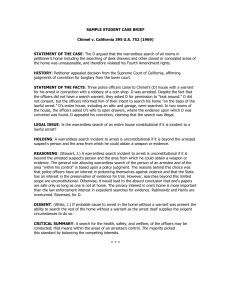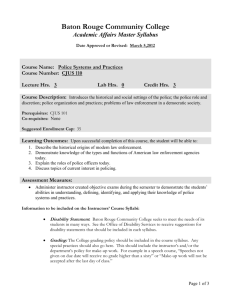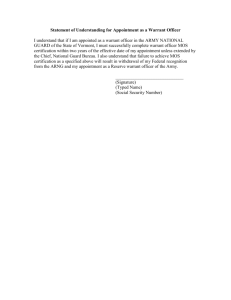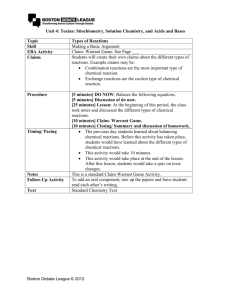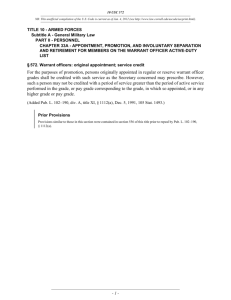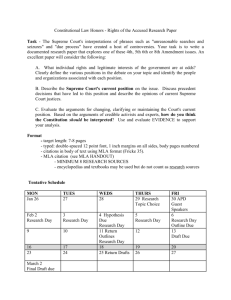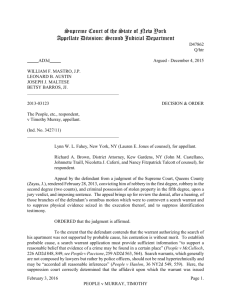Fruit of the Poisonous Tree - The Law Office of Terri Wood
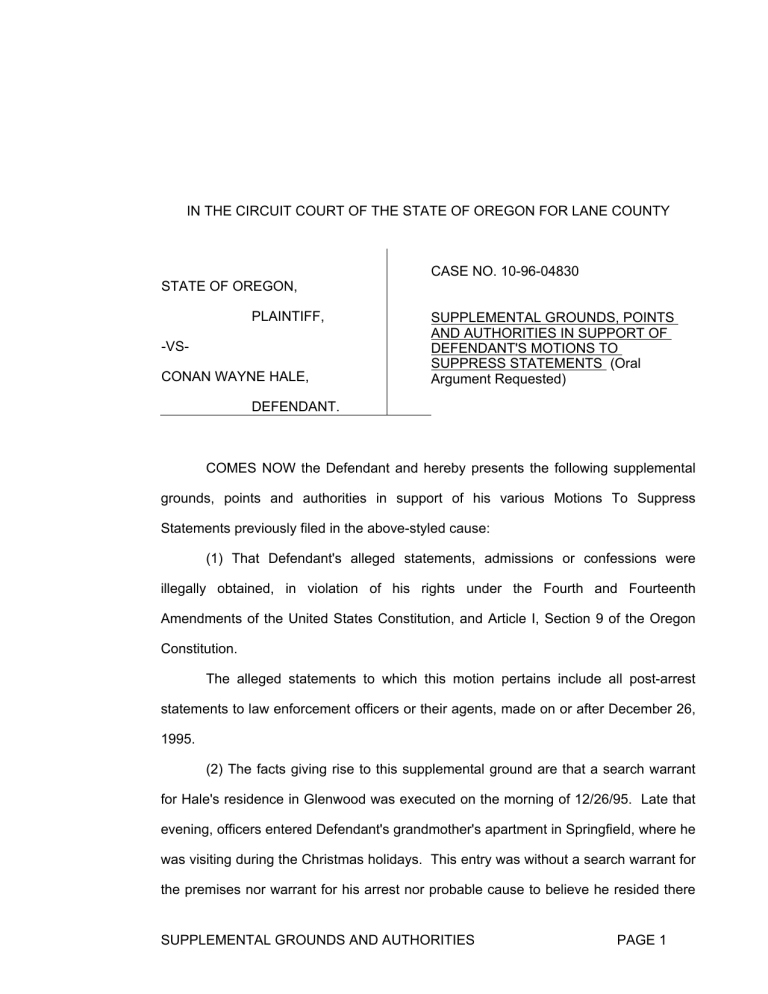
IN THE CIRCUIT COURT OF THE STATE OF OREGON FOR LANE COUNTY
STATE OF OREGON,
PLAINTIFF,
-VS-
CONAN WAYNE HALE,
DEFENDANT.
CASE NO. 10-96-04830
SUPPLEMENTAL GROUNDS, POINTS
AND AUTHORITIES IN SUPPORT OF
DEFENDANT'S MOTIONS TO
SUPPRESS STATEMENTS (Oral
Argument Requested)
COMES NOW the Defendant and hereby presents the following supplemental grounds, points and authorities in support of his various Motions To Suppress
Statements previously filed in the above-styled cause:
(1) That Defendant's alleged statements, admissions or confessions were illegally obtained, in violation of his rights under the Fourth and Fourteenth
Amendments of the United States Constitution, and Article I, Section 9 of the Oregon
Constitution.
The alleged statements to which this motion pertains include all post-arrest statements to law enforcement officers or their agents, made on or after December 26,
1995.
(2) The facts giving rise to this supplemental ground are that a search warrant for Hale's residence in Glenwood was executed on the morning of 12/26/95. Late that evening, officers entered Defendant's grandmother's apartment in Springfield, where he was visiting during the Christmas holidays. This entry was without a search warrant for the premises nor warrant for his arrest nor probable cause to believe he resided there
SUPPLEMENTAL GROUNDS AND AUTHORITIES PAGE 1
or could be located there independent of the illegal search of the residence, in violation of the state and federal constitutional protections against unlawful searches and seizures. Shortly after this illegal search of the premises and seizure of Mr. Hale, he was subjected to custodial interrogation and made statements which the prosecution seeks to use against him. Those statements must be suppressed as evidence derived from the illegal search and seizure, i.e., as "fruit of the poisonous tree".
(3) "In terms that apply equally to seizures of property and to seizures of persons, the Fourth Amendment has drawn a firm line at the entrance to the house.
Absent exigent circumstances, that threshold may not reasonably be crossed without a warrant." Payton v. New York, 100 SCt 1371, 1382 (1980); State v. Olson, 287 Or 157
(1979)(copy attached).
Payton held that an arrest warrant alone will suffice to enter a suspect's own residence for the limited purpose to effect his arrest " when there is reason to believe the suspect is within " 100 SCt at 1388 (emphasis added). Furthermore, if probable cause exists, no arrest warrant is required to apprehend a suspected felon in a public place. Thus, the subject of an arrest warrant can be readily seized before entering or after leaving the home of a third party. Steagald v. United States , 101 SCt 1642, 1652
(1981).
Steagald held that police in possession of an arrest warrant could not enter the home of a third party where they believed the subject of the arrest warrant was located, without first obtaining a search warrant for the residence. Steagald , however, dealt with the Fourth Amendment interests of the third-party rather than the arrestee for whom a warrant had issued.
The issue presented in the case at bar was addressed by the United States
Supreme Court in Minnesota v. Olson , 110 SCt. 1684 (1990)(copy attached). There the court held that defendant, as an overnight guest, had a reasonable expectation of
SUPPLEMENTAL GROUNDS AND AUTHORITIES PAGE 2
privacy in the premises which was protected by the Fourth Amendment and, thus, had standing to challenge his warrantless arrest. In other words, Olson extended the reasoning of Payton to a third-party residence where the arrestee was present as a guest, holding that in the absence of an arrest warrant, a search warrant would be required to enter the premises where police believed the arrestee was located.
The facts in Olson are also similar to those in the case at bar: Police suspected Olson of being the driver of the getaway car used in a robbery-murder. After recovering the murder weapon and arresting the suspected murderer, they surrounded the home of two women with whom they believed Olson had been staying. When police telephoned the home and told one of the women that Olson should come out, a male voice was heard saying "tell them I left." Without seeking permission and with weapons drawn, they entered the home, found Olson hiding in a closet, and arrested him. Shortly thereafter, he made an inculpatory statement, which the trial court refused to suppress. He was convicted of murder, armed robbery and assault. The state supreme court reversed, ruling the arrest was the result of an illegal search and seizure, and that his statement was tainted and should have been suppressed. On certiorari to the U.S. Supreme Court, this holding was affirmed.
(4) Mr. Hale was a guest, not a resident, of the apartment where he was arrested. See, e.g., United States v. Harper , 928 F2d 894 , 896-97 (9th Cir. 1991)(copy attached).
(5) Neither Mr. Hale nor anyone else present at the apartment consented to the warrantless search. See, e.g., U.S. v. Vaneaton , 49 F3d 1423, 1426-27 (9th Cir.
1995)(copy attached).
(6) Under Article 1, Section 9, an officer may not enter premises from which the public is excluded without consent; police intrusion violates the "privacy of the premises" and anyone who has a right to be on the premises may contest the search.
SUPPLEMENTAL GROUNDS AND AUTHORITIES PAGE 3
Thus, an aggravated murder defendant could not be arrested without warrant at the business where he worked in an area not open to the public, and statements he made to police following his arrest could be suppressed. See State v. Rivas , 100 OrApp 620
(1990)(copy attached); see also State v. Munro, 96 Or App 238 (1989)(recognizing that invited guest in the home of another has a protectable privacy interest under state constitution).
(7) Good cause exists for the Court to allow the defense to raise these grounds at this stage of the case.
Months prior to hearing on the aforesaid Motions to Suppress, the defense requested discovery pursuant to ORS 135.825(2) of "the circumstances of [any] search and seizure, and the circumstances of the acquisition of any specified statements from the defendant". See copy of counsel's letter dated 31 May 1996, attached as Exhibit 1.
The defense is unaware that the prosecution provided any reports setting forth that the circumstances of Defendant's arrest included a nonconsentual, warrantless entry into his grandmother's home. Those facts are material to whether or not grounds existed to challenge his warrantless arrest as being illegal and therefore calling for the suppression of evidence, such as his statements, obtained as a result of the illegal arrest. See, e.g., State's Exhibit 2 at these pretrial hearings (custody report stating
"officers . . . went to 1500 Main St., Springfield, where we took Hale into custody without incident."
The defense did not learn of these facts until brought out through the testimony of witnesses at pretrial hearings in this cause on 3 June 1997.
(8) The defense reserves the right to submit supplemental points and authorities in support of the suppression of statements due to violation of Mr. Hale's rights against unreasonable search and seizure.
Submitted this 4th day of June, 1997.
SUPPLEMENTAL GROUNDS AND AUTHORITIES PAGE 4
TERRI WOOD OSB 88332
Attorney for Defendant
CERTIFICATE OF SERVICE
I CERTIFY that on 4 June1997 I served a true, exact and full copy of the within
SUPPLEMENTAL GROUNDS, attached EXHIBIT and copies of the cases as indicated herein on the Lane County District Attorney, attorney of record for the plaintiff, by leaving a copy at his office at the Lane County Courthouse with his clerk or person apparently in charge thereof, or, if there was no one in charge, by leaving it in a conspicuous place therein.
Dated: 4 June 1997.
TERRI WOOD, OSB 88332
SUPPLEMENTAL GROUNDS AND AUTHORITIES PAGE 5

